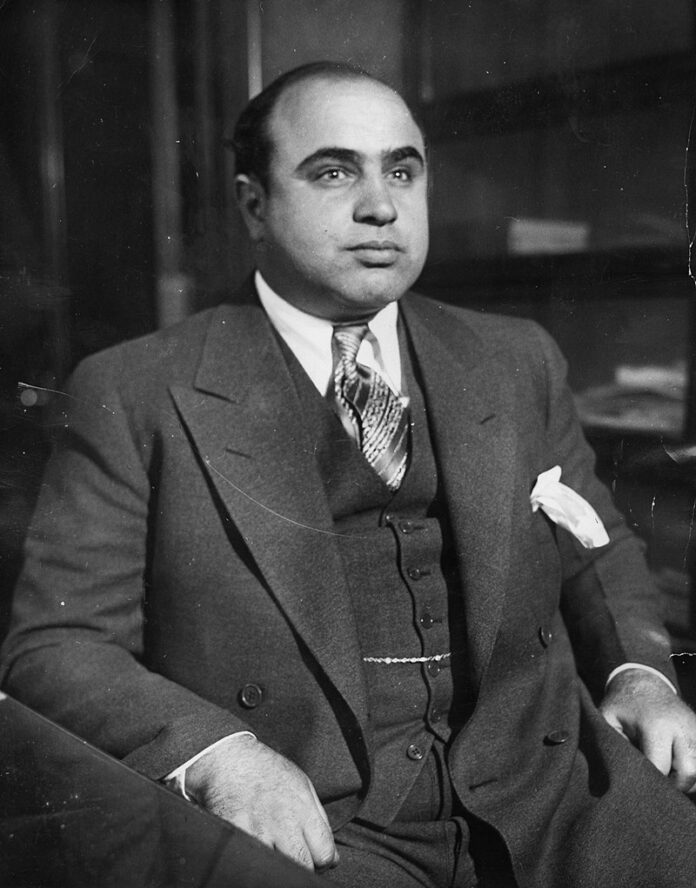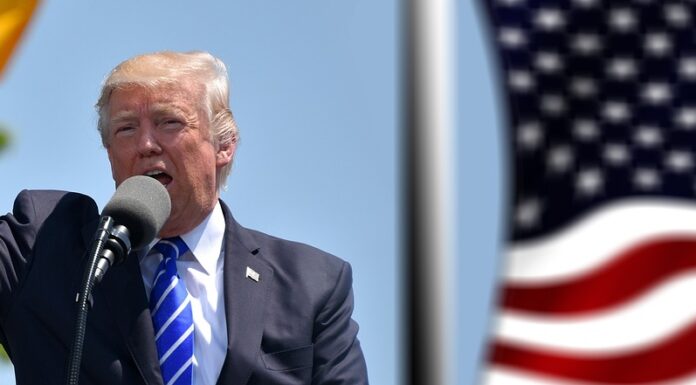
The road to becoming a narco-state is paved with good intentions
‘We are evolving into a narco-state’, a Belgian judge who had to go into hiding in a safe house for months has recently warned. In an open letter to Belgium’s federal parliamentary Justice Committee, she stated that ‘a narco-state is characterised by an illegal economy, corruption and violence’ and that Belgium meets all three criteria. Certainly in the area of ‘corruption’, she thereby made the following painful observations:
‘Criminal organisations buy the cooperation of workers in the port or threaten them. For moving a container, 10 minutes’ work, they receive 100,000 euros and 50,000 euros per sports bag moved, sometimes 20 times that amount.
This bribery penetrates our institutions from the ground up. The investigations I have led in recent years – and I am only one of 17 investigating judges in Antwerp – have led to the arrest of key port employees, customs officials, police officers, civil servants at the counters of various cities and municipalities and, sadly, also judicial staff within the prison and even here in this building. Our ICT is insufficiently secure.’
Belgium is basically a narco-state, a top Antwerp judge has warned.https://t.co/zH0fSm2mfR
— POLITICOEurope (@POLITICOEurope) October 27, 2025
No surprise
Unfortunately, none of this comes as a surprise. Back in 2010, the Brussels public prosecutor’s office already announced a ‘zero tolerance’ policy in the Brussels district of Kuregem, as Belgian Minister of Justice De Clerck promised ‘summary justice’. The Justice Committee approved a law to double the penalties for violence against the police. The ultimate reason why not much came of this? Insufficient staff.
Back in 2002, the Belgian Federal Parliament passed legislation to crack down on the assets of criminals. In practice, however, this has been hardly applied. In 2020, magistrates and investigators warned in a book that crime is therefore very lucrative in Belgium, as a result of the ‘glaring’ lack of people and resources to investigate the assets of criminals. In De Tijd, they said the following about this:
“Valuable initiatives taken since the 1990s, often inspired by internationally imposed “recommendations”, have mostly failed due to a distressing lack of people and resources. To date, no integrated financial investigation policy has been put in place. There is no integrated, asset-oriented approach. A comprehensive policy remains non-existent.‘
Tackling users?
Some now suggest cracking down on hard on the users of illegal narcotics. On Twitter/X, for example, successful author Johan Op de Beeck states: “’Narcostate! Why not tackle the market, i.e. the users? Strict penalties, instead of normalisation.”
This reaction is understandable, but the question is whether such a policy will be successful. In Portugal, the opposite was done in 2001 in response to a plague of heroin addiction. The use of both soft and hard drugs was decriminalised. This did not mean that these products could suddenly be traded. It simply meant that the government would not prosecute users, apart from imposing a small fine. Portugal’s experience is very interesting because it became clear that drug addiction did not increase as a result of the policy. After 20 years, it was found that drug use remained consistently below the EU average.
This finding is very important. It suggests that, contrary to what many assume, the use of such substances is unrelated to how harshly or leniently users are treated. In the United States, where a “war on drugs” began in 1971, the harsh approach failed to prevent the crack cocaine crisis of the 1980s or the more recent opioid crisis.
In Portugal, on the other hand, there has been a dramatic decline in the number of overdoses and HIV infections since its lenient policy was implemented. Meanwhile, the US, with its tough approach, seems unable to get the problem under control.
Vicente Fox, who was President of drug-ravaged Mexico from 2000 to 2006, has since emerged as one of the most prominent advocates of marijuana legalisation. He says: ‘The ban on [drugs] does not work’. He believes that decriminalising drugs would weaken the economic power of illegal organisations.
It is clearly of great importance that the entire chain is legalised. Due to a political compromise in the Netherlands, only the use and sale of cannabis, but not its production, has been legalised for years. This naturally led to organised crime jumping into the gap where legitimate companies were not allowed to operate: cannabis production. In that sense, this half-hearted policy was perhaps even worse than a complete ban, because it helped organised crime to grow financially. On the other hand, it did ensure that users could enjoy control over the cannabis products they bought, and that sales channels such as “coffeeshops” could also be held legally liable for any damage.
In the US state of Oregon, a partial decriminalisation of possession of certain drugs was decided in 2020. The policy was partially reversed in 2024, with drug possession once again being severely punished. The influx of the particularly dangerous drug fentanyl during that period certainly gave the policy a bad name, but legalising or decriminalising use does not, of course, mean that users who cause nuisance should be left unpunished. Part of the problem is that, over the years, it has become more difficult for judges in the US to send people who are hopelessly addicted or mentally ill to a rehabilitation clinic, even though these people often no longer have free will. It is possible to be in favour of legalising drugs without supporting the current policy of abandoning people who lack free will and who should be receiving help. Naturally, both were however conflated politically.
There are few precedents for the complete legalisation of drugs, except in the distant past, when heroin, cannabis and cocaine were sold freely. Then, one can look at the disastrous consequences of Prohibition in the United States in the 1920s and 1930s to draw parallels with today’s problems. Al Capone was only able to become so rich and powerful in Chicago at that time thanks to the prohibition of alcohol. It is one of the reasons why virtually no one today supports such a policy, even though alcohol causes a great deal of damage. There is a consensus that pushing everything underground makes things much worse. The same policy is followed in many European countries with regard to prostitution.
🇧🇪 Des gangs marseillais s’installent à Bruxelles.
Fusillades à Molenbeek, Anderlecht, Saint-Gilles : armes longues, morts et ce même en plein jour.
Une juge parle désormais de narco-État.
Et pendant ce temps, Bruxelles est sans gouvernement depuis plus d’un an.
Des années de… pic.twitter.com/I9UeknuOxw— Simao.rda 🦅 (@Simao_rda) November 6, 2025
Not just drugs
Where such a successful approach to “harm reduction” enjoys less support is in the area of policy on tobacco and “related products”. On the contrary, European policymakers seem to be becoming increasingly aggressive in this area. For example, the Belgian Minister of Health, Frank Vandenbroucke, has issued a ban on smoking and vaping on and near terraces, as well as on the use of public smoking rooms such as shisha bars and cigar rooms, from 2027 onwards. In 2023, he already banned nicotine pouches, even though these often do not even contain tobacco and despite warnings that this would fuel the black market. At the EU level, he enthusiastically supports the European Commission’s efforts to make tobacco and its alternatives even more expensive through substantial tax increases.
First of all, such policies ignore the experience in Sweden, the only EU member state where the existence of a legal, non- or less-harmful alternative to cigarettes – snus – has led to fewer smokers and therefore also fewer smoking-related diseases over the past thirty years.
Moreover, in the fight against organised crime, the consequences of banning and overtaxing all kinds of products should not be underestimated. An article about the trade in counterfeit cigarettes in Belgium appeared recently in De Tijd. According to Brussels police chief inspector Michael, the problem is getting worse in certain neighbourhoods. He states:
‘The number of sellers has increased in recent years and the gangs’ methods have become more professional.’ According to him, these sellers are ‘often illegal and have to buy the cigarettes themselves. If they are caught, they lose their goods and money and end up at the Immigration Office. It is pure exploitation of human misery, but the potential profits for the gangs are huge. The cigarette trade is comparable to the drug trade, only with fewer risks.’
Belgian health minister Frank Vandenbroucke’s patronising approach to this problem will therefore only make the situation worse. Degrading the hospitality industry to supervisors for his ban on smoking on terraces is one thing, but fuelling organised crime through all kinds of bans and ever-higher taxes is something else entirely. Then the politician is notorious for refusing to listen to alternative points of view.

Legalise or not
Whether one wants to legalise drugs or not, it is clear that organised crime also profits from other dodgy business, such as tobacco smuggling and, in the future, perhaps from the politically created black market in all kinds of alternative products, such as vaping or snus, which often contain no tobacco at all. If certain lobby groups are being listened to, alcohol will also be targeted.
Excise duties on alcohol are already rising year after year, which means that it will become more attractive for criminals to produce it illegally. The lessons of Al Capone clearly have not been learned.












